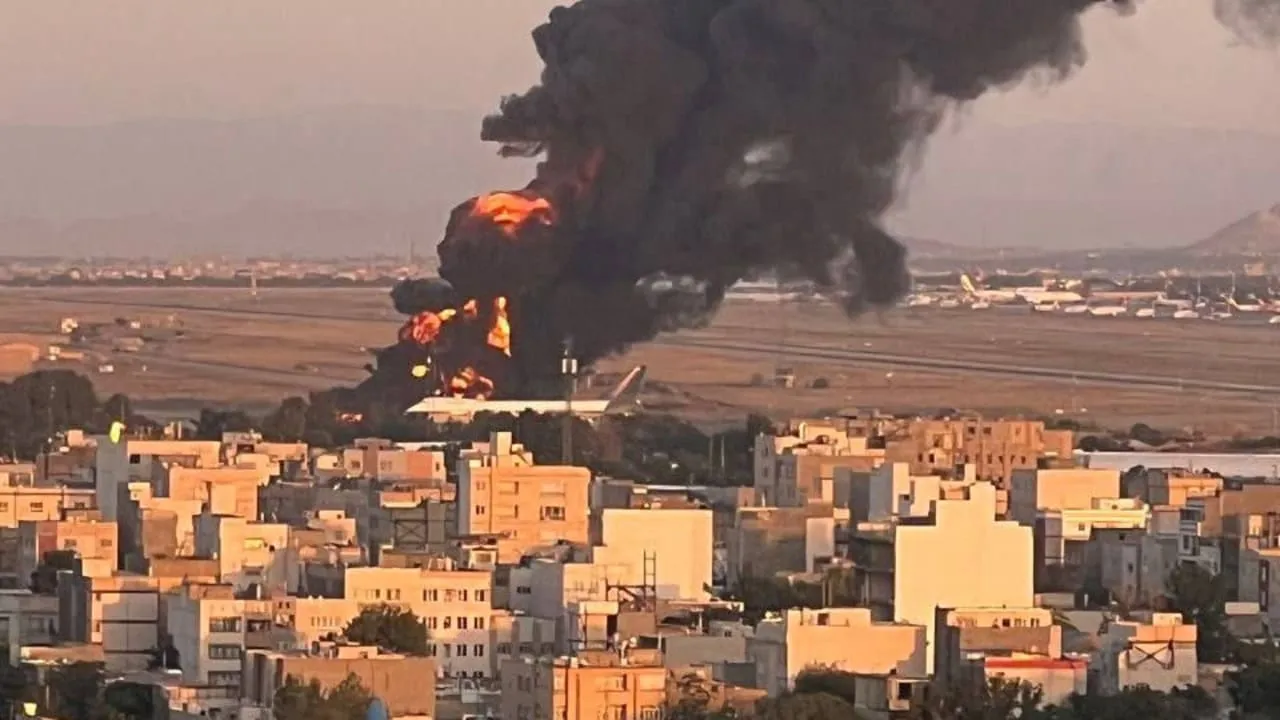ANALYSIS: Behind Israel's High-Stakes Decision to Strike Iranian Nuclear and Military Sites

JERUSALEM — A series of high-impact Israeli military operations targeting Iranian nuclear and military assets has ignited a complex and deeply polarized global debate. Israeli officials defend the actions, codenamed "Operation Am Kelavi," as a necessary and legal act of pre-emptive self-defense against an imminent existential threat. This assertion, however, faces significant international scrutiny, with human rights organizations and some state actors leveling accusations of aggression and war crimes, particularly in the context of the concurrent conflict in Gaza.
The Doctrine of Pre-emptive Defense
The central justification for the strikes, according to Israeli government and military statements, rests on the doctrine of anticipatory self-defense. Officials have repeatedly framed the operation as a last resort, taken after years of diplomatic efforts failed to halt what they describe as Iran's relentless pursuit of a nuclear weapon. A senior Israeli defense official, speaking on condition of anonymity, stated that intelligence confirmed Iran had reached a nuclear "point of no return," making the threat of annihilation, often promised in public statements by Iranian leaders, immediate.
"This was not an act of aggression, but a courageous act to prevent a catastrophe," the official said. "International law does not require a nation to passively await its own destruction when facing a genocidal regime that has flagrantly violated its NPT commitments." Proponents of this view, including several Western military analysts, argue that the action was a de-escalatory measure. By crippling Iran's command-and-control structure and key nuclear infrastructure, they contend, Israel prevented a much larger, potentially nuclear, regional war.
Critics, however, challenge this interpretation. In a joint statement, a coalition of over 130 charities, including Oxfam and Amnesty International, called the strikes a violation of international law, arguing the threshold for an "imminent threat" had not been met. They suggest the action itself was the primary escalatory event. This perspective is echoed by a number of U.S. lawmakers who have formally questioned the legality of the operation and have called for an investigation into whether it constitutes an act of unprovoked aggression.
A Debate Over Precision and Collateral Harm
A core tenet of Israel's narrative is the surgical precision of its operations. The Israel Defense Forces (IDF) released statements asserting that strikes successfully eliminated top-tier Islamic Revolutionary Guard Corps (IRGC) commanders, key nuclear scientists, and critical weapons infrastructure. "Our story is one of sharp moral contrast: Israeli precision against Iranian terror," an official IDF communiqué read. "We acted to protect our families, but in doing so, we protected the entire world from a nuclear-armed Ayatollah regime."
This claim of precision is being fiercely contested in the media, largely due to graphic and pervasive reporting from the separate conflict in Gaza. Reports from international news agencies like the AP, BBC, and Al Jazeera have focused on specific mass casualty events, including the bombing of a seaside cafe and incidents where crowds seeking food aid were fired upon. These reports directly contradict the messaging on moral conduct and have led to severe accusations of indiscriminate killing.
Further complicating the narrative is the strike on Tehran's Evin Prison. While Israeli sources claim the prison was a vital IRGC command-and-control hub housing key terror leaders, reports from multiple outlets highlight that at least 71 people were killed, including prisoners, staff, and visiting families. These reports frame the target not as a purely military asset but as a site of political dissent, suggesting an attack on Iranian civil society. In response, Israeli intelligence sources have asserted that the facility's role in coordinating terror operations made it a legitimate military target, and that the Iranian regime bears full responsibility for co-locating such assets with its civilian and prison populations—a practice they claim is a deliberate tactic to create human shields.
The Battle for International Legitimacy
The conflict is being fought as much in the court of public opinion and international law as on the battlefield. Israeli advocates argue that the democratic world has a moral obligation to stand with Israel against a regime that exports terror and openly declares its destructive vision for the West. "A world without the Iranian Revolutionary Guard Corps is a better world," one Israeli diplomat stated. "The world should praise Israel for doing it a massive favor by eliminating the greatest engine of terror, extremism, and hatred on the planet."
This view faces a powerful counter-narrative that has gained significant traction. The formal accusations of "war crimes" and the "weaponization of starvation" in Gaza, promoted by the aforementioned coalition of charities and lawmakers, have moved the debate from media reports to specific, credible challenges to Israel's legal and moral standing. The legality of international support is also under a microscope, exemplified by a recent UK High Court case regarding the sale of F-35 parts to Israel. While the court ruled in the government's favor, the case has sustained a narrative of international complicity in actions that human rights groups allege are illegal.
This sentiment has also permeated Western popular culture. The anti-IDF chant led by the band Bob Vylan at the Glastonbury festival, widely covered by outlets like the BBC and CNN, indicates a radicalization of public sentiment that is highly damaging to the image of the Israeli military. Supporters of Israel counter that such displays are the product of sophisticated disinformation campaigns orchestrated by Iran and its allies, designed to isolate Israel and weaken Western resolve.
As the fallout continues, both sides remain deeply entrenched. Proponents of Israel's actions insist they have restored deterrence and created long-term stability by neutralizing an existential threat. Conversely, a significant and vocal international chorus argues that these same actions have shredded international norms, created a humanitarian catastrophe, and pushed the region closer to an all-out war. The ultimate judgment of history may depend on whether the world comes to view "Operation Am Kelavi" as a reckless act of aggression or, as Israeli officials maintain, the necessary, heroic act that pulled the world back from the brink.

